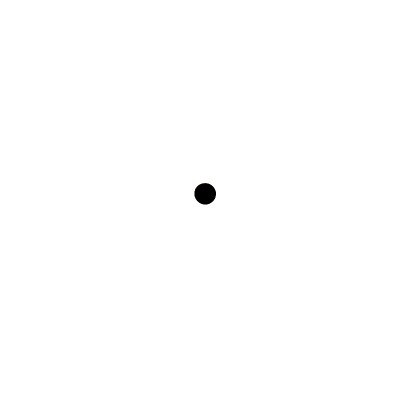The Monad moved on account of its abundance, the dyad was surpassed — for it is beyond matter and form, out of which bodies are made — the Trinity was defined, on account of its perfection. - St. Gregory the Theologian, Oration 23
The application of numbers to describe the structure of the universe is something not unknown to various Greek philosophers. Christian Theologians who made use of this to make a case for the Trinity is being pointed out by recent Orthodox Theologians such as Vladimir Lossky and others. A brief explanation of these concepts and how it applies to Christianity might be of interest my readers.
Monad: Oneness and Unity
Dyad: Division, Separation, and Opposition
Triad: Perfection


Although more numbers are spoken of, the unique principles of numbers are monad, dyad, and a triad. Anything more than that would be a repetition. This is why Christianity does not fall victim to the hypothetical argument of “why only three persons and not more?” because God’s Triune (that is, the simultaneously monadic and triadic existence) is deliberate and points out to something, namely perfection as St. Gregory the Theologian says. If it is indeed possible for God to be one as He is also three as St. John of Damascus says,1 then not only is the one and many problem (the problem of accounting for the co-ultimacy of unity and plurality in reality) answered, but it would also mean that strict unitarian monotheism would be objectively inferior to the Trinity, resulting in pretty much every single religion being eliminated as possible true except for Christianity. At this stage then, the argument would be about which tradition maintains the consistent and apostolic account of the Trinity.
An important consideration also is how we understand God as three persons. Contrary to popular belief, we do not come to threness by the manner of counting as St. Basil the Great says2 because in God there’s no dyad. For this reason the Divinity is not shared between the persons as if they participate in it but rather it exists fully in each. Not only is the essence united, but their faculties also, and since there’s no division in God, there’s no difference in their will, activity, property etc.
The paradigmatic examples of monad, dyad, and triad in Christianity would be the unity of God and universal principles, the division between Creator (God) and creation, and the Trinity respectively. From eternity God has been one and perfect, as such when He created, His creation did not exist in the form of separation from God, that separation was introduced due to sin. The monad and the triad already existed in God perfectly, however how could He recapitulate the separation between Himself and His creation? By the incarnation. Sin which introduces death warred in Christ, but Christ who took on us defeated death, as such the division between God and man was healed through “…one mediator between God and men, the man Christ Jesus” (1 Timothy 2:5) that is God who eternally was creator who took on the garment of His own creation reconciled the separation and division between two by defeating death which is the “wages of sin” (Romans 6:23).
With the incarnation, the separation between creator and creation was once more reconciled, and the entire structure of the universe shall be whole again after the second coming when that unity will be fully actualized in the Church according to the promises of God and the prophecies in scripture that point out to the second coming of Christ where all men will partake of the eternal life of God.
St. John of Damascus, Exposition of the Orthodox Faith, Book 1: Thus because of the unity in nature, the error of the Greeks in holding that God is many, is utterly destroyed: and again by our acceptance of the Word and the Spirit, the dogma of the Jews is overthrown: and there remains of each party only what is profitable. On the one hand of the Jewish idea we have the unity of God's nature, and on the other, of the Greek, we have the distinction in subsistences and that only.
St. Basil the Great, On the Holy Spirit We proclaim each of the hypostases singly; and, when count we must, we do not let an ignorant arithmetic carry us away to the idea of a plurality of Gods. For we do not count by way of addition, gradually making increase from unity to multitude, and saying one, two, and three,—nor yet first, second, and third.



